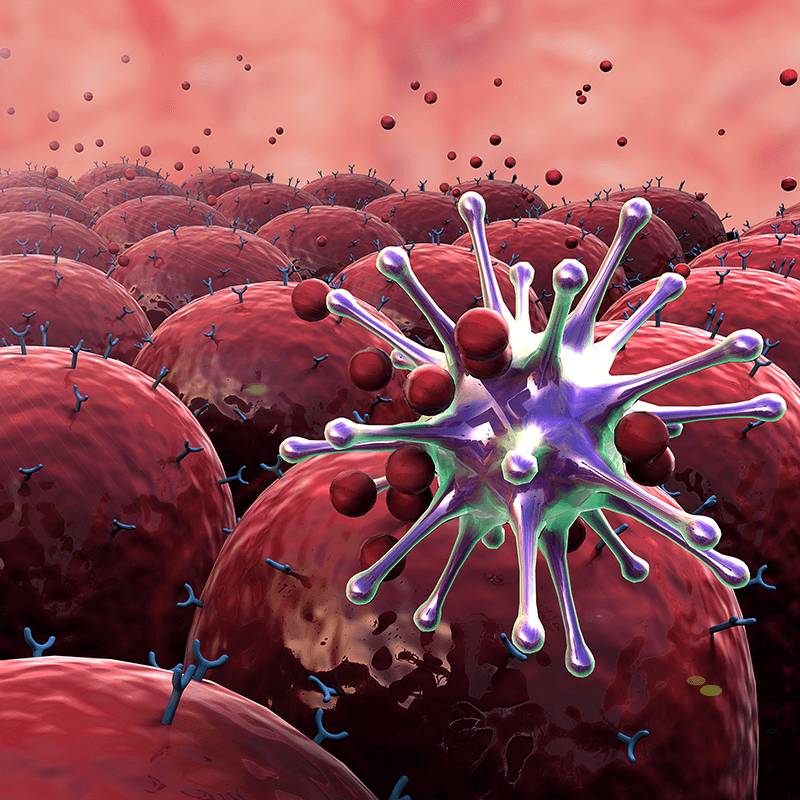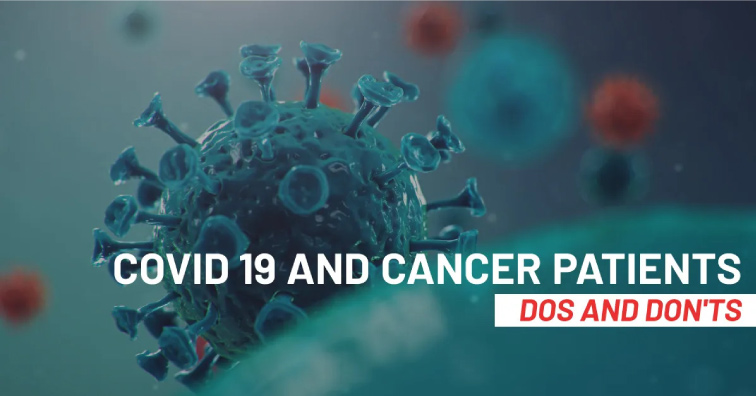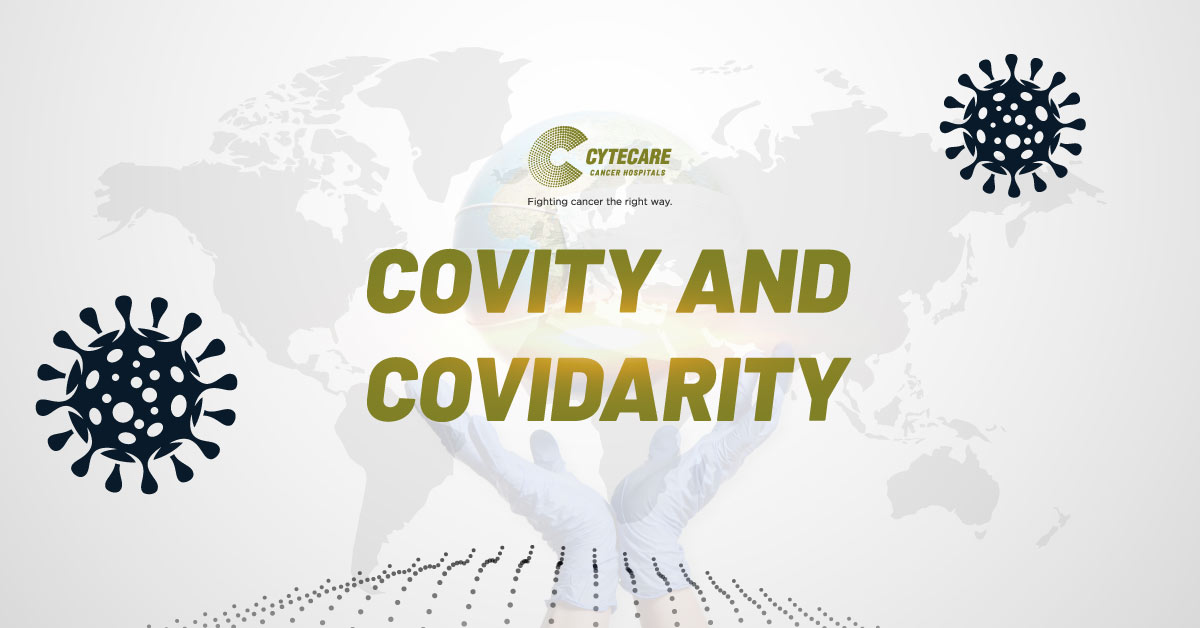
Scientific advancements for cancer treatment have grown by leaps and bounds in recent decades. Medical science has not been left out of this great leap forward and cancer research is one such field. Apart from a better understanding of the disease, we also have a host of novel cancer treatments.
One of these breakthrough treatments is for cancer immunotherapy. Immunotherapy cancer treatment is a type of targeted therapy or biologic therapy that uses the body’s natural immune system to kill cancer cells. Immunotherapy for cancer is known by other names such as immuno-oncology.
How does Immunotherapy work?
The immune system helps the body to ward off diseases and illness, both caused by external as well as internal factors. However, the immune system cannot detect cancer cells since cancer cells lack the external markers that the immune system uses to identify hostile bodies, essentially ‘hiding’ from the immune system. The cancer cells can also signal the immune system to not destroy them or the immune system may be too weak to destroy cancer cells even if it can identify them.
This is where immunotherapy cancer treatment steps in. The immune system should be able to destroy tumor cells and immunotherapy treatment is a way to help the body’s immunity to do that.
Is immunotherapy available in India?
Immunotherapy treatment devised for cancer patients helps their body’s immune system to fight the cancer cells. Launched a few years back, immunotherapy in India is progressing with each day. Leading healthcare institutions across the country have provisions for immunotherapy for their patients. Patients today have better access to the kind of cancer treatment their clinical needs demand than was the case a few decades back.
Immunotherapy is mostly used on third or fourth stage cancer patients and not all patients qualify to meet the immunotherapy treatment requirements as it varies with various clinical conditions and cancer types.
What is the cost of immunotherapy?
Depending on the patient’s conditions, there are numerous immunotherapy sessions taking place in a month’s interval or so (varies with patients). The cost of each session is between ₹1-1.5 lakh and ranges as per clinical terms. Doctors schedule the treatment sessions and drug doses depending on the patient’s clinical examination and further need.
Immunotherapy is an expensive treatment that does not agree with all the cancer patients. The drugs are patented and imported from foreign nations, and the cost itself is a huge concern for many. With its efficiency in targeted cancer cells and with few side effects, this therapy is gaining popularity among the masses.
What types of cancer can be treated with immunotherapy?
Immunotherapy has proven beneficial in the treatment of most cancer types. The various common types of cancer that can be treated with immunotherapy include lung cancer, some skin cancers (particularly melanoma), kidney cancer, bladder cancer, head and neck cancers, lymphoma. Not as widely used as radiation therapy, surgery or chemotherapy, some studies indicate that immunotherapy has shown 20-30% positive results on the patients. Doctors advise for this treatment when the patient’s body fails the first and second-line treatments.
Types Of Cancer Immunotherapy
It can be difficult to clearly categorize different types of immunotherapy due to overlap and the use of combination therapy to cancer treatment.
The most common types of immunotherapy include:
Monoclonal Antibodies
Monoclonal antibodies are synthetic antibodies made in a laboratory. Usually, antibodies are produced by the immune system in response to a threat, and these antibodies find and target the threat to eliminate it from the body. Monoclonal antibodies work in a similar manner.
Monoclonal antibodies can help the immune system to find cancer cells by interfering with the proteins of the cancer cells so that they become visible to the immune cells. It can also help to weaken the cancer cells so that they can be destroyed by the immune system.
Cytokines
Cytokines are a type of protein that helps the body destroy abnormal or dangerous cells. Cytokines include proteins such as Interleukin and Interferon.
These proteins interfere with the division and growth processes of cancer cells, boost the functions and growth of killer T-cells, and make cancer cells more visible to the immune system.
Checkpoint inhibitors
These inhibitors cancel out the effect of proteins produced by cancer cells that stop the immune system from killing them. This allows the immune system to find them and destroy them.
Checkpoints refer to the proteins present on the surface of T-cells (killer cells in the immune system) that turn ‘on’ in response to a threat and turn ‘off’ when needed. This helps to activate and deactivate the killing functions of the T-cells.
Cancer cells switch off the checkpoints on T-cells so that they are not attacked and checkpoint inhibitors turn these back on.
Cancer vaccines
It may sound impossible but there is such a thing as vaccines against cancer and they are a type of immunotherapy.
Cancer vaccines are designed to identify certain protein markers on cancer cells. They can then work to inhibit the growth of abnormal cells, remove abnormal growths that couldn’t be reached with other treatments, and prevent the re-growth of cancer cells.
Adoptive cell transfer
This is the latest type of cancer immunotherapy and may be offered as a part of clinical trials. Adoptive cell transfer refers to the transfusion of T-cells into the patient’s body. T-cells are a type of white blood cells or lymphocytes that destroy threats in the body such as pathogens and abnormal cells.
The most common type of adoptive cell transfer CAR T-cell therapy (CAR- Chimeric Antigen Receptor). Doctors take a sample of T-cells from the patient, genetically engineer them so that they can differentiate them cancer from normal cells, multiply these modified T-cells, and return them to the patient’s body.
Immunotherapy is a novel approach to cancer treatment and it works in many cases where other conventional treatments like chemotherapy and radiation don’t. While some types of treatment are still being perfected, they are a glowing beacon of hope for cancer treatment.
References:
https://www.cancer.gov/about-cancer/treatment/types/immunotherapy
https://en.wikipedia.org/wiki/Cancer_immunotherapy
https://www.cancerresearch.org/immunotherapy/what-is-immunotherapy
http://www.cancerresearchuk.org/about-cancer/cancer-in-general/treatment/immunotherapy/types




